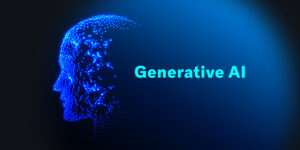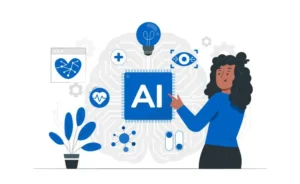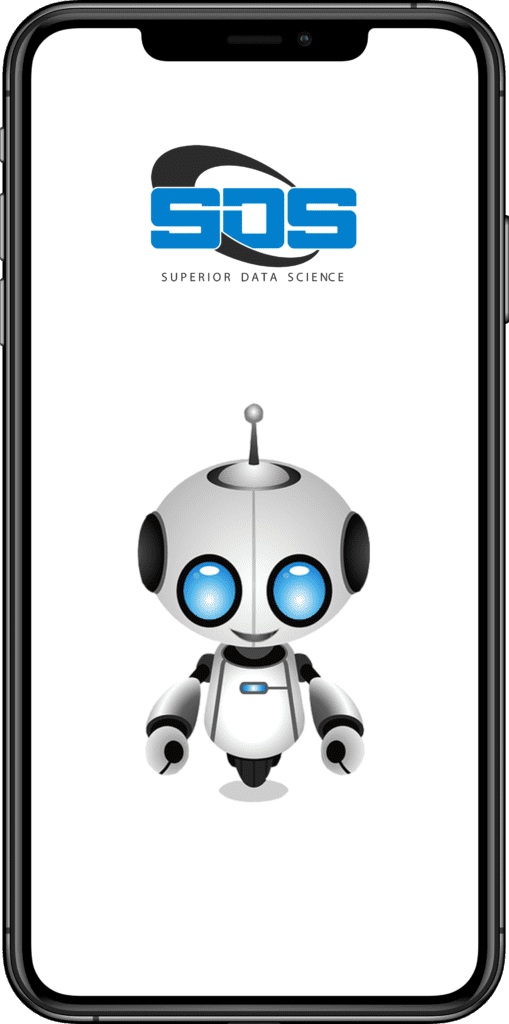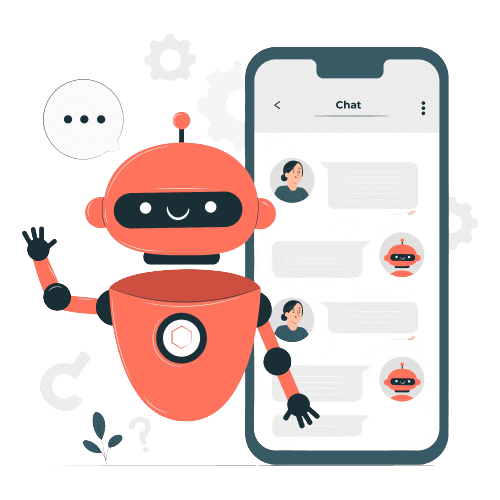Artificial Intelligence (AI) is reshaping the landscape of application development, ushering in a new era of efficiency, innovation, and user-centric design. As businesses strive to stay ahead in the competitive app market, leveraging AI to build apps has become a game-changer.
I. Introduction
Definition of AI in Application Development
AI in application development involves using machine learning algorithms and other AI techniques to automate and enhance various aspects of the development process.
Growing Trend in AI-powered App Development
The increasing reliance on AI is evident in the growing trend of integrating intelligent technologies into app development workflows.
II. Benefits of AI in Application Development
Efficiency and Speed
One of the primary advantages of AI into application development is the significant boost in efficiency and speed. Automation of repetitive tasks allows developers to focus on more complex aspects of the app.
Enhanced User Experience
AI-driven apps can analyze user behavior, preferences, and feedback to provide a personalized and seamless experience. This leads to higher user satisfaction and engagement.
Personalization
AI enables developers to create highly personalized apps by understanding user preferences and tailoring content, recommendations, and features accordingly.
Predictive Analytics
Utilizing machine learning algorithms, apps can predict user actions, trends, and potential issues, allowing for proactive improvements and optimizations.
III. Challenges of AI in Application Development
Data Security Concerns
As AI relies heavily on data, ensuring the security and privacy of user information becomes a paramount concern. Developers must implement robust security measures to address these challenges.
High Initial Costs
While the long-term benefits of AI in application development are substantial, the initial costs can be high. Overcoming this challenge involves strategic planning and cost-effective implementation.
Limited Understanding and Trust
Many stakeholders may still have limited understanding and trust issues concerning AI. Educating and building confidence among users, developers, and decision-makers is crucial.
IV. Overcoming Challenges
Implementing Robust Security Measures
Developers must prioritize data security, implementing encryption, secure APIs, and regular audits to address potential vulnerabilities.
Cost-effective AI Integration
Strategies such as phased implementation and utilizing open-source AI frameworks can help mitigate initial costs and make AI integration more accessible.
Increasing AI Literacy
Building awareness and understanding of AI among all stakeholders is essential. Training programs and resources can bridge the knowledge gap.
V. AI Tools for App Development
Natural Language Processing (NLP)
NLP enables apps to understand and respond to human language, facilitating chatbots, language translation, and voice recognition.
Machine Learning (ML)
ML algorithms allow apps to learn from user interactions, improving over time and providing more personalized experiences.
Computer Vision
Computer vision in app development enables image and video recognition, opening doors to augmented reality and enhanced visual capabilities.
VI. Real-world Examples
AI-driven Mobile Apps
Leading companies have successfully integrated AI into their mobile apps, showcasing the potential for improved user engagement and innovative features.
Success Stories
Highlighting specific success stories where AI played a pivotal role in application development and contributed to business growth.
VII. Future Trends
Evolution of AI in App Development
As AI technologies continue to advance, exploring the evolving landscape of Application development with AI and potential future innovations.
Potential Innovations
Anticipating upcoming AI innovations that may reshape the way apps are developed and utilized.
VIII. How to Leverage AI for Your App
Identifying Appropriate Use Cases
Carefully assessing where AI can add the most value to your app, whether in automation, personalization, or predictive analytics.
Collaborating with AI Experts
Engaging with professionals who specialize in AI development to ensure successful integration and optimal results.
IX. Case Studies
Companies Embracing AI for That
Examining case studies of companies that have successfully embraced AI, highlighting the benefits and lessons learned.
Measurable Success Stories
Quantifiable metrics and success stories to showcase the tangible impact of That.
X. Tips for Choosing an AI App Development Partner
Expertise in AI Technologies
Evaluating potential partners based on their expertise in AI technologies relevant to application development.
Portfolio and Client Testimonials
Reviewing the partner’s portfolio and client testimonials to gauge their track record and customer satisfaction.
Scalability and Flexibility
Considering the scalability and flexibility of the AI application development partner to accommodate future growth and changing needs.
XI. Common Misconceptions
AI Replacing Human Developers
Addressing the misconception that AI will replace human developers and emphasizing the collaborative role of AI in enhancing human capabilities.
Complexity of Implementation
Clarifying that while AI integration may seem complex, with the right approach, it can be tailored to meet specific app development needs.
XII. Addressing Perplexity in AI Application Development
Balancing Complexity and User-Friendliness
Striking a balance between incorporating advanced AI features and ensuring a user-friendly experience to avoid overwhelming users.
Ensuring User Understanding
Communicating AI-driven features in a way that users can comprehend, fostering trust and transparency.
XIII. Burstiness in App Development
Rapid Advances in AI Technologies
Acknowledging the rapid evolution of AI technologies and how developers can stay ahead of the curve to leverage the latest advancements.
Staying Ahead of the Curve
Tips and strategies for developers to stay informed about the latest AI trends and incorporate them into their app development practices.
XIV. Writing Code vs. Letting AI Do It
Pros and Cons
Exploring the advantages and disadvantages of writing code manually versus leveraging AI for coding tasks.
Striking a Balance
Recommendations on finding the right balance between human involvement and AI automation in the coding process.
XV. Conclusion
Recap of Benefits and Challenges
Summarizing the key benefits and challenges of using App development with AI.
The Future of AI in App Development
Concluding with a glimpse into the future of That and its potential impact on the industry.
FAQs
- Is AI really necessary for app development, or is it just a trend?
AI is increasingly becoming a crucial aspect of app development, offering efficiency, personalization, and enhanced user experiences. It goes beyond a trend and is shaping the future of the industry. - How can businesses overcome the initial costs of implementing app development with AI?
Businesses can adopt phased implementation strategies, explore open-source AI frameworks, and strategically plan to mitigate the initial costs of integrating AI into app development processes. - What are the key security measures to consider when incorporating App development with AI?
Essential security measures include implementing encryption, securing APIs, conducting regular security audits, and ensuring compliance with data protection regulations. - Can AI completely replace human developers in app development?
No, AI is designed to complement human developers, automating repetitive tasks and enhancing efficiency. The collaboration between AI and human developers is key for successful app development. - How can developers stay updated on the latest AI trends and technologies in app development?
Developers can stay ahead of the curve by actively participating in AI communities, attending onferences, and continuously learning through online resources and courses.










